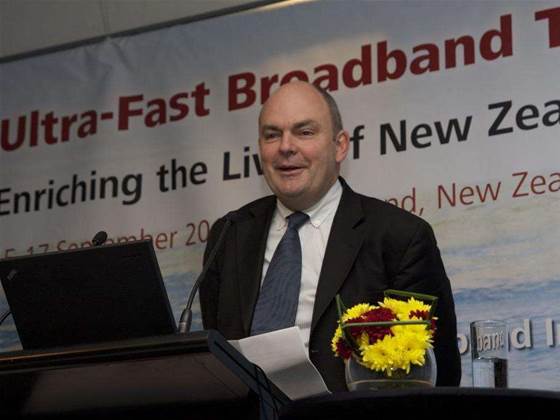New Zealand Communications Minister Steven Joyce has given industry just one week to respond to an unprecedented 77-page document that sets out proposed legislative changes to the country's telecommunications sector.

The notice period drew sharp rebukes from the Opposition and industry groups who have sought an immediate extension to the submission deadline.
Opposition Labour ICT spokesman Clare Curran called the consultation period an "outrageous abuse of process", given the standard period for a Select committee to give was six weeks.
"The government is disregarding democratic process and rushing through its law changes with scant regard to community reaction and involvement," Curran said.
Telecommunications Users Association of New Zealand (TUANZ) chief Paul Brislen said the proposed law changes represented "a radical overhaul of the telco industry" and as such needed to be treated with care rather than rushed through in a week.
TUANZ and lobby group InternetNZ were both asking for an extension for deadline for submissions on the new bill.
InternetNZ chief executive Vikram Kumar told iTnews an additional two weeks would be required to digest the two hundred pages of "complex, detailed material" that the government released.
According to the Joyce's offices, the bill and accompanying documents contained measures to support the implementation of the Government's Ultra-Fast Broadband (UFB) and Rural Broadband Initiative (RBI) schemes.
The UFB would see up to NZ$1.5 billion invested in an open-access, dark-fibre network to support broadband services to 75 percent of New Zealanders, while the $285m RBI project would be built by a consortium of Telecom NZ and Vodafone.
The Government's supplementary order paper, released yesterday, set out proposed legislative changes for the structural separation of Telecom New Zealand, in case the incumbent was selected as the Government's UFB network partner.
It also proposed tax law changes to ensure that Telecom shareholders weren't penalised financially if the company de-merged into a retail unit (ServiceTel) and infrastructure unit (Chorus2).
Telecom New Zealand was presently operationally separated into three units: Retail, Wholesale and Chorus. Chorus2 would include the current wholesale unit, should a de-merger go ahead.
However, TUANZ and InternetNZ claimed the proposals went much further than just providing a legislative framework for Telecom's structural separation.
The organisations claimed the proposals effectively rewrote the entire New Zealand Telecommunication Act as it stood today, making it necessary for more time to be provided for industry to properly digest the information.



_(20).jpg&h=140&w=231&c=1&s=0)







 iTnews Executive Retreat - Security Leaders Edition
iTnews Executive Retreat - Security Leaders Edition
 iTnews Benchmark Awards 2026
iTnews Benchmark Awards 2026
 iTnews Cloud Covered Breakfast Summit
iTnews Cloud Covered Breakfast Summit












_(1).jpg&h=140&w=231&c=1&s=0)



